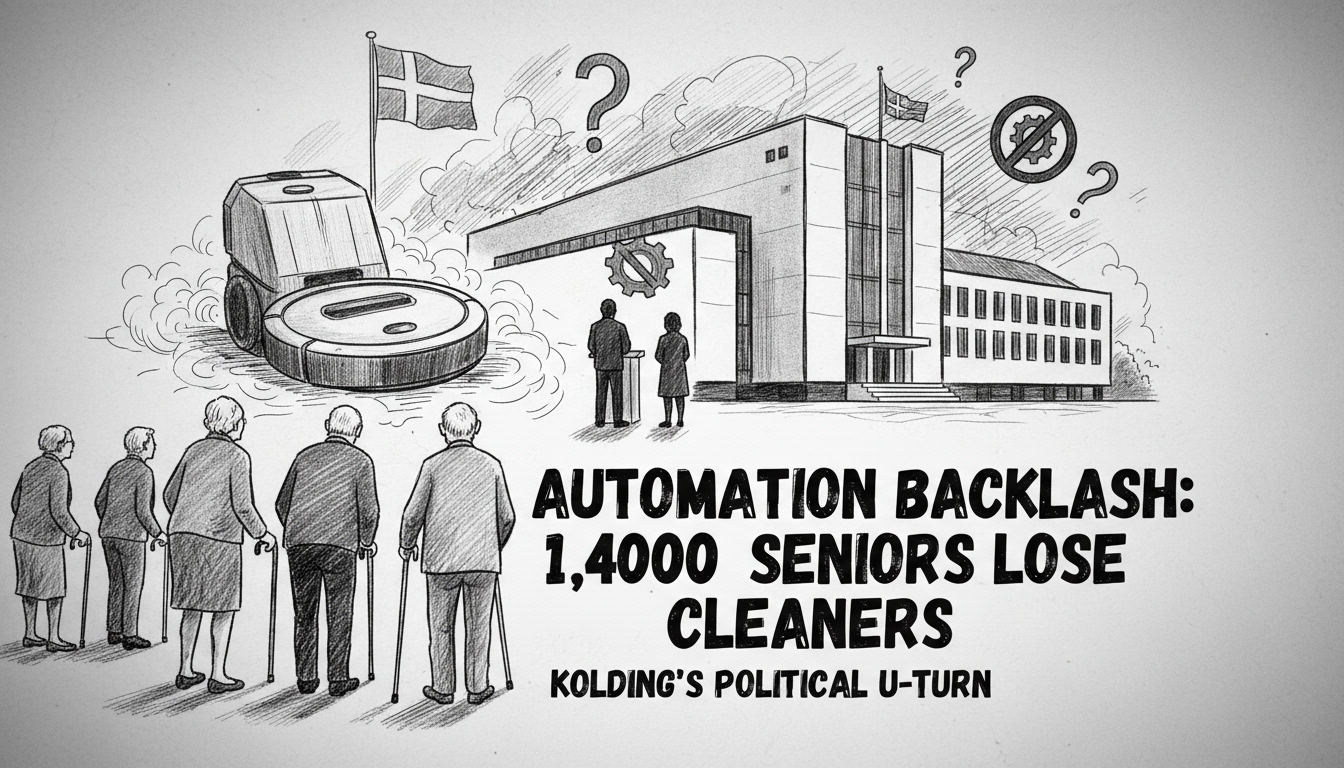Nearly 1,400 elderly residents in Kolding Municipality lost their municipal vacuuming services this year. The local government replaced human cleaners with robotic vacuum cleaners in a controversial cost-cutting move. Now, with municipal elections approaching, the largest party in the council has reversed its position after massive public backlash.
Two senior citizens expressed strong dissatisfaction with the new system. Ninety-two-year-old Emil Lysen called the decision 'rubbish' while 67-year-old Henning Hansen, who has survived two brain hemorrhages, described it as 'foolish.' Both residents report practical problems with the robots getting stuck under furniture and failing to clean properly.
The case has generated unprecedented public response according to local officials. Søren Rasmussen, chairman of the municipality's senior committee, confirmed this has become the most discussed issue during his 28 years on the council. 'This beats school closures and everything else. People have really felt offended by this,' Rasmussen stated.
When the council initially approved the robot vacuum cleaner program in autumn 2022 as a budget measure, only the Danish People's Party opposed the decision. The policy took effect at the start of this year, affecting approximately 1,400 elderly residents who were informed they would need to purchase robot vacuum cleaners.
Now, Venstre, the largest party in Kolding's council, has performed a dramatic U-turn just before municipal elections. The party's mayoral candidate, Jakob Ville, acknowledged the widespread criticism. 'If you make a stupid decision, you shouldn't be too proud to change it,' Ville said in a statement.
The reversal comes despite earlier protests. During late summer last year, two citizens delivered 600 protest signatures against the robot vacuum policy. Critics question why the party waited until election season to change its position.
Ville explained that budget proposals typically take eighteen months to implement fully. 'We've encountered massive criticism about this, and we've said we're willing to change and revise it,' he noted. However, affected seniors will need patience as any policy change would only occur during next autumn's budget negotiations, meaning the earliest possible implementation would be 2027.
Venstre now joins the Danish People's Party and Denmark Democrats in advocating for voluntary choice between robotic and human vacuuming services. All three parties campaign on letting citizens decide whether they prefer machines or people for cleaning tasks.
The Social Liberal Party (SF) maintains support for the robot program alongside other council parties. SF's lead candidate Iben Lehmann Rasmussen defended the policy by emphasizing staff shortages in elderly care. 'The main purpose was about freeing up hands for care work,' she explained, comparing the robot vacuum introduction to when seniors received microwave ovens to heat their own meals.
Rasmussen acknowledged citizen complaints but suggested improving the assessment process rather than abandoning the technology entirely. 'If we got to decide ourselves, we would strengthen the assessment so it actually became a bit more humane,' she stated.
The robot vacuum debate extends beyond Kolding, affecting municipalities nationwide according to the Danish Elderly Association. The organization's local branches have held voter meetings in over 70 municipalities where the topic consistently emerges. Chief consultant Per Tostenæs observed, 'It's our impression that something will happen in relation to this very massive introduction of robot vacuum cleaners that many municipalities have chosen.'
The Elderly Association supports robot vacuum cleaners as an option for capable individuals but insists the choice should remain voluntary. This position aligns completely with the Danish People's Party's stance in Kolding. Rasmussen emphasized the importance of human contact, noting that regular visits from caregivers provide crucial opportunities to check on seniors' wellbeing beyond just cleaning.
New employment figures from Kolding Municipality reveal 16 vacant positions in the 'Help at Home' unit as of September this year, within a department employing 750 total staff members. The staffing challenges highlight the broader context of resource allocation decisions facing Danish municipalities.
This case illustrates the tension between technological efficiency and human dignity in elderly care services. Municipal governments across Denmark face similar dilemmas as they balance budget constraints against quality of life concerns for vulnerable citizens. The political reversal in Kolding suggests automated service replacements may face increasing public resistance when they eliminate human contact that many seniors value.

